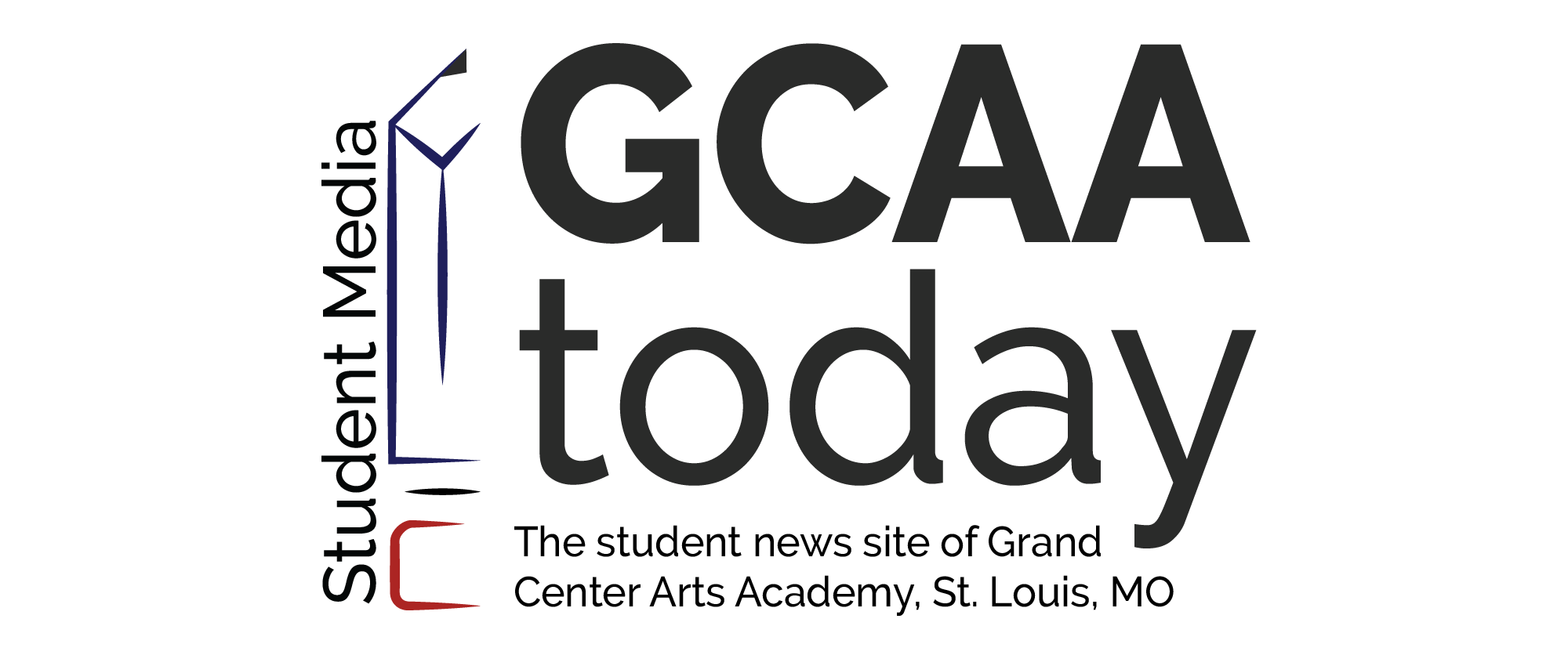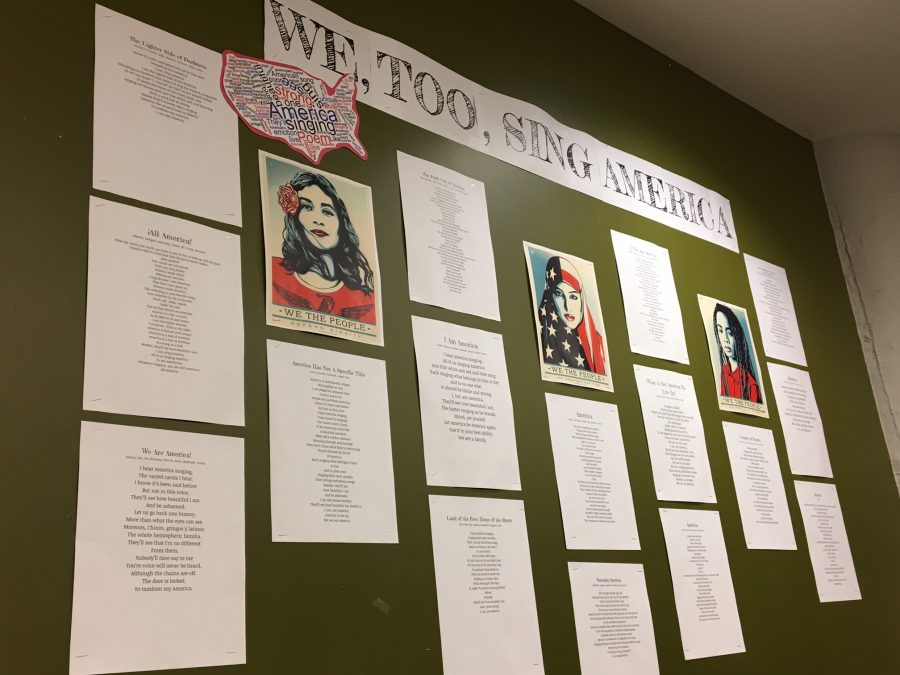Freshmen express what it means to be an American through poetry, “We, Too, Sing America”
Sixteen poems written by freshmen students hang on the fourth floor. Each poem is used to express to readers what it mean to be an American.
February 9, 2017
Since the beginning of the semester, freshman have been working on a poetry unit called ‘Rhythm and Resistance’ with Amber Murphy, 9th Grade English teacher and Anna Sobotka, high school ELA teacher. In the unit, they use poetry to express a bigger idea about the country they live in.
“In honor of inauguration, we in our ninth grade classes read poems about America,” said Sobotka.
“We wanted to somehow incorporate poetry into helping students think about what it means to be American,” stated Murphy, because the aftermath of the election is “making people feel like they don’t belong”. The project wasn’t created with the purpose of resisting the election, “but I think a lot of kids took it that way,” said Murphy. The students used the project as an “opportunity to express their feelings about America”.
They began their project by reading three American poems–“I hear America singing”, by Walt Whitman, “I, Too”, by Langston Hughes, and “I, Too, Sing América”, by Julia Alvarez. Each poem was written as a response to the ones prior to it, and each poem was created to embody an act of resistance by incorporating a wider view of what America is than the last dose.
Students were “really engaged and empowered by [the project]”, and through it, they got to “create their own meaning of what it means to be American” said Murphy.
The first lines in “I, Too, Sing América”, read: “I know it’s been said before, but not in this voice”. This is the idea that propelled this particular poetry project. The students, after reading the poems, split into groups and wrote what is called a “found poem”, where they found lines in each of the poems, wrote some of their own lines, and rearranged them to create an entirely new poem. The poems were “inspired by the old poems, but integrated with [the students’] experiences with America, too,” Sobotka explained.
The lines written by the students stand out in the poems, because many of them have a modern twist. One poem reads: “America dabs to every beat that the government takes”. Another says: “The poor build the bridge from one side; but the rich burn it from the other”. Another reads: “We flush our toilets with cleaner water than families in Flint, Michigan drink”.
All of these lines, written by students, are mixed with lines from the original poems, and although all of these poems are different, they were meant share a similar voice. In almost every poem written, there was a line about America singing. There were many variations–some said “I, too, sing America”, some said “I hear America singing”–but nearly all had a line from the original poems about America singing.
“It was a really powerful, meaningful assignment,” said Murphy.
Since completing this project, the students have moved on to different forms of poetry. They have written Praise Poems, in which they were assigned to praise something that is perceived as bad or negative about themselves, such as mental illness or sexuality. Students have also composed Dialogue poems, in which they wrote a poem using the voices of two different people. They are also working on Ekphrasis poems, where the students “look at a piece of artwork and write a poem about it,”. The overall message of the unit is that there are many different forms of resistance, and that poetry is one of them.
“… the most refreshing part of it was that they put together these poems that came from the same discussion and from the same pieces, and they all turned out very different,” said Sobotka. “I’m proud that the students can be critical of their country while also being optimistic about their futures and what the country represents to them.”









